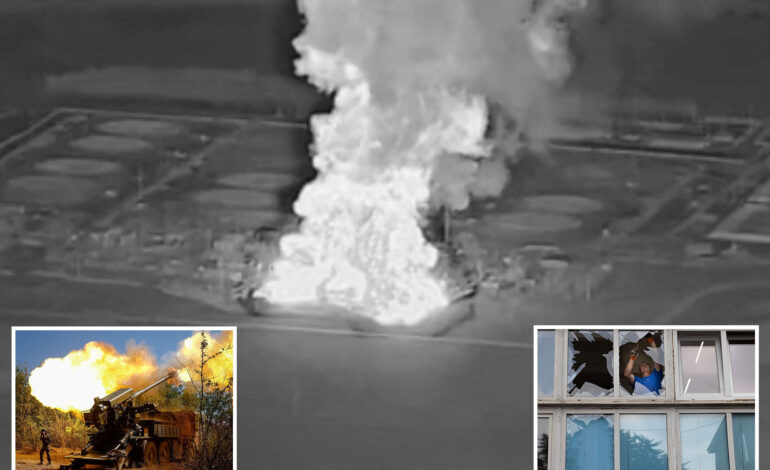Ukraine Destroys Key Section of Russia’s Druzhba Oil Pipeline

Ukrainian forces have targeted and destroyed a significant section of Russia’s Druzhba oil pipeline, intensifying the ongoing conflict despite ongoing peace negotiations. The attack occurred on the night of March 15, 2024, when Ukrainian forces struck the Unecha oil pumping station in the Bryansk region, according to Robert Brovdy, commander of Ukraine’s unmanned systems forces. The strikes resulted in a massive fire at the facility, which is crucial for oil supplies to Europe.
Footage shared on social media platform Telegram depicted flames engulfing the facility, which houses several fuel tanks. Alexander Bogomaz, the governor of the Bryansk region, confirmed that Ukraine utilized HIMARS rockets and drones in a coordinated assault on the energy facility. The Unecha station plays a vital role in transporting oil to Hungary and Slovakia as part of the Druzhba pipeline system.
In response to the attack, both the Hungarian and Slovakian governments issued warnings that oil supplies to their nations could be disrupted for at least five days. In a letter to the European Commission, Foreign Ministers Peter Szijjarto of Hungary and Juraj Blanar of Slovakia emphasized the critical nature of the pipeline, stating, “The physical and geographical reality is that without this pipeline, the safe supply of our countries is simply not possible.”
As hostilities escalate, both Ukraine and Russia have intensified their assaults on each other’s energy infrastructure. This uptick in attacks comes despite a diplomatic push by President Trump to broker a peace deal aimed at ending the war. While Moscow has consistently targeted Ukraine’s gas infrastructure, Kyiv has retaliated by damaging Russian refineries, aiming to disrupt the energy exports that finance Russia’s military operations.
The current situation reflects a broader strategy by Ukraine to undermine Russia’s energy capabilities while defending its own infrastructure against ongoing threats. The ramifications of these attacks extend beyond immediate military objectives, potentially affecting energy security across Europe as the conflict continues to evolve. The situation remains fluid, with further developments anticipated as both sides navigate the complexities of warfare and diplomacy.






